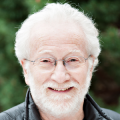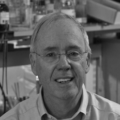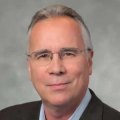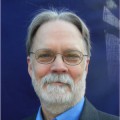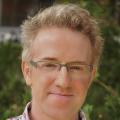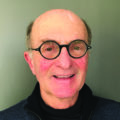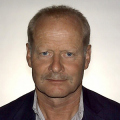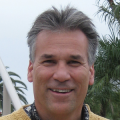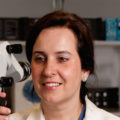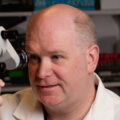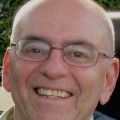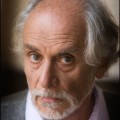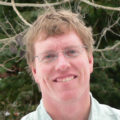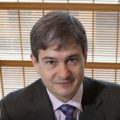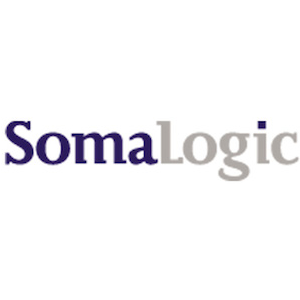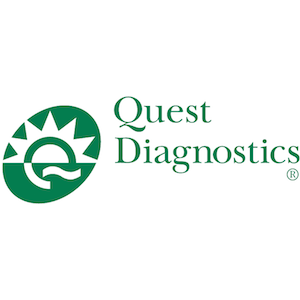2013
The Biological and Social Evolution of Healthcare: Rube Goldberg and Time
The 2013 symposium recognized the complexities of healthcare, which included the intellectual, scientific, economic, and social aspects. The sessions explored the expanding scientific basis of personalized medicine; explored drug targets and development; and considered the impact of education, aging, chronic conditions, and immunology on the evolution of healthcare. Presentations on healthcare economics and efficiency, and reflections on the future were included, as well as a discussion about efforts toward slowing global warming.
View Program
-
-
Opening Remarks 2013
Dr. Larry Gold is the Founder and Chairman Emeritus of the Board, and former CEO of SomaLogic. Prior to SomaLogic, he also founded and was the Chairman of NeXagen, Inc., which later became NeXstar Pharmaceuticals, Inc. In 1999, NeXstar merged with Gilead Sciences, Inc. to form a global organization committed to the discovery, development and commercialization of novel products that treat infectious diseases.
-
-
Drugs and Vaccines
-
Antibiotics Past, Present, and Future: At the Academic/Biotech Interface
As new antibiotics are brought into widespread clinical use for the treatment of life-threatening infections, resistant pathogens emerge as sensitive bacteria die off. Thus, there is a constant need for new generations of antibiotics to combat arising waves of multidrug resistant pathogens. Traditionally bacterial infections have been a target-poor therapeutic arena and many of the large pharmaceutical companies have closed...
-
Novel Adjuvants For New Vaccines
Safe and effective adjuvants for prophylactic and therapeutic vaccine use are resulting from the identification of small molecules and optimization of their formulations. For a new adjuvant to be widely accepted and used, however, non-clinical safety and efficacy are not the only important aspects to be considered. Also helpful are detailed knowledge of mechanism of action, local and systemic effects...
-
Towards an HIV Vaccine
Developing an HIV vaccine remains an important, unanswered challenge: one in 200 people on earth are infected with HIV. In order for HIV to infect a cell, the membrane surrounding the virus needs to fuse with the membrane surrounding the cell. Our approach to HIV vaccine development is to target this membrane-fusion process.
Studies of the membrane-fusion proteins...
-
Drug Discovery: Infinitely Complex but Don’t Overthink It
Absent safe and effective therapeutics, many diseases remain untreatable or are treated with limited success. Why has the discovery and development of new drugs been so difficult? Setting aside our poor understanding of the human biological system, one significant problem with many small molecule drugs is that they lack sufficient selectivity for the intended target leading to unwanted and at...
-
-
Drugs and Diagnostics
-
Open Source Drug Discovery – A Limited Liability Tutorial
Finding effective medicines is hard. A model we have used in the past is one based on competition and some level of secrecy. New moves by the pharmaceutical industry, called “open innovation”, are operating along similar lines. Are we discovering the drugs we need quickly? No. I will describe an alternative model of drug discovery based on open source -...
-
Big Science on a Small Budget: Neuropeptide Receptors and Drug Discovery
Receptors are signal-transducing proteins that sense the cell’s environment and respond to a particular stimulus by eliciting an intracellular response. Due to the importance of their physiological roles, receptors have been major drug targets; they account for about 50-60% of all pharmaceuticals in the market. Hence there is a great interest in identifying new therapeutics by targeting receptors involved in...
-
Noninvasive Personal Genomics
Whenever there is cell death, apoptotic cell free DNA fragments appear in the circulation of the host. These fragments, typically 145-160 base pairs in size represent a minute fraction of total DNA in the host circulation. If care is taken to avoid host cell breakage, the apoptotic DNA fragments can be analyzed to provide information about the genome of the...
-
The Transformation of Society by Microchips and Scalable Technologies: From Computers to Healthcare
Microelectronic chips have been scaled up in complexity and down in size over decades, and this progression led to a transformation of our daily lives, society, and even our way of thinking. More recently, bio-chips have transformed genomic analysis, heralding a new era of personalized medicine. Diseases, however, ultimately manifest themselves at the level of protein dysfunction and proteins thus...
-
-
Drugs, Nutrition and Magic
-
Drug Discovery and Development: It’s All about Human Genetics Really
The ability to stratify patients and their disease by understanding the genetic basis of their disorders is a very powerful paradigm for drug discovery and development. All the phenotypic tests that have been developed are all a consequence to some extent of the genetics of the patient. The biomarker literature is littered with false associations owing to small sample sizes...
-
The Scientific Challenge of expanding the Frontiers of Nutrition
The Nestlé Institute of Health Sciences (NIHS) was founded to conduct biomedical research employing holistic systems biology approaches to improve our understanding of health and to further develop medical nutrition strategies for slowing the onset of chronic disease. Our main research axes are brain, metabolic and gut health with a special emphasis on cognition, diabetes, obesity and the gut microbiome....
-
Sleights of Mind
Magic tricks fool us because humans have hardwired processes of attention and awareness that are hackable — a good magician uses your mind’s own intrinsic properties against you in a form of mental jujitsu. The insights that magicians have gained over centuries of informal experimentation have led to new discoveries in the cognitive sciences, and they also reveal how our...
-
Champions of Illusions
Drs. Macknik and Martinez-Conde produce the annual Best Illusion of the Year Contest, a celebration of the ingenuity and creativity of the world’s premier illusion creators. Visual illusions are those perceptual experiences that do not match the physical reality. Our perception of the outside world is generated indirectly by brain mechanisms, so all visual perception is illusory to some extent....
-
We Know How to Fix the Healthcare System
The Healthcare System’s business model must be changed. The dysfunction in the healthcare system has to be dis-intermediated as iTunes dis-intermediated the music publishing industry and Amazon dis-intermediated the book publishing industry.
Dr. Feld will explain how this can be done in the healthcare industry to align all the stakeholders incentives using information technology and social networking. This...
-
-
Roses, Education and Complexity
-
Death and Its Prequel
Beginning with a joke-riddled marathon tour of how the great philosophers viewed Death, this presentation moves on to a more serious contemplation (although not completely joke-free) of how philosophers view old age. This second part looks particularly into the teachings of Epicurus, who viewed old age as the pinnacle of life.
-
Educating Our Smartest Kids to Tackle the Big Problems in Healthcare
I was intrigued by the topic Larry Gold suggested in his email inviting me to speak, so I have taken it up as my title, with variations on his theme. I plan to reflect a bit on the nature of the problems we face--his “big problems”--in health care and beyond, a bit on the kind of leadership those problems demand,...
-
Complex Systems, Idiosyncracy, and Scarce Data: Observations from the Field
Field biologists face the daunting task of generating fundamental truths based upon scarce data from complex systems that are idiosyncratic in time and location. How do field biologists make progress and are there lessons to be learned? Drawing upon my experience with the Rocky Mountain Biological Laboratory and the Organization of Biological Field Stations, I briefly describe what it is...
-
Energy and Climate Policy and the Lessons for Healthcare
In 2009, the Obama Administration proposed major legislation to restructure two key areas of the American economy: health care and energy. Both present enormous challenges for American society in the decades ahead, and addressing the problems posed by each will require foresight and planning. We face a substantial transformation of the energy sector in the United States in order to...
-
Moderators





